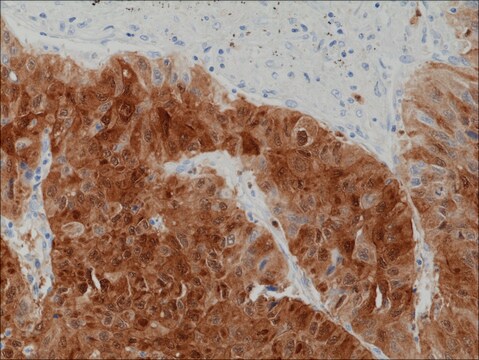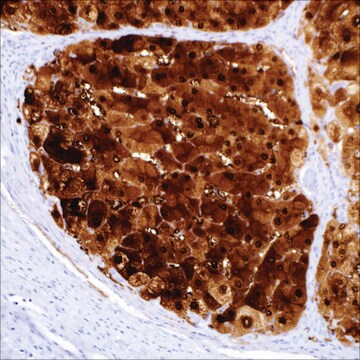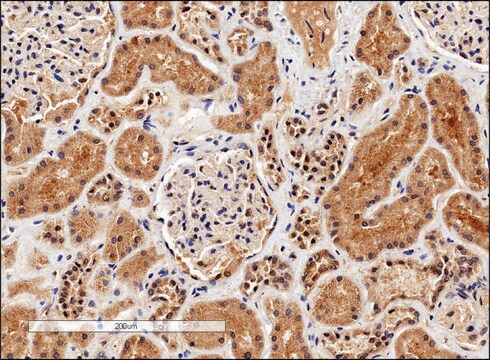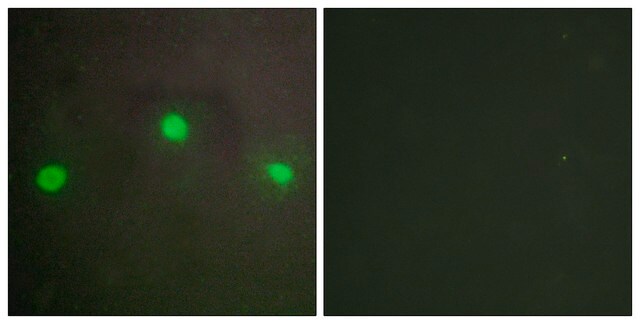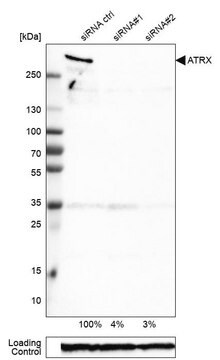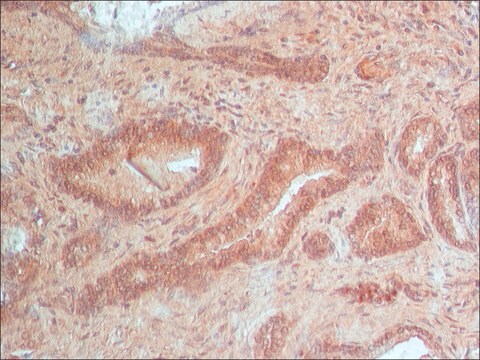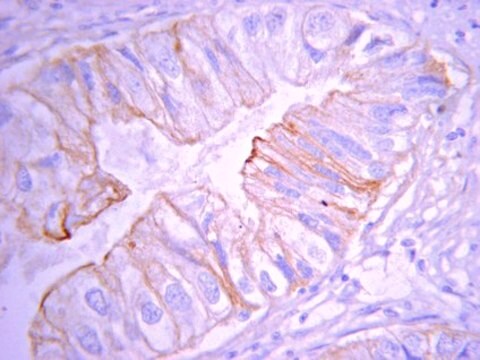ZRB1088
Anti-Arginase-1 Antibody, clone 3B17 ZooMAb® Rabbit Monoclonal

recombinant, expressed in HEK 293 cells
About This Item
Productos recomendados
origen biológico
rabbit
Nivel de calidad
recombinante
expressed in HEK 293 cells
conjugado
unconjugated
forma del anticuerpo
purified antibody
tipo de anticuerpo
primary antibodies
clon
3B17, recombinant monoclonal
monoclonal
Línea del producto
ZooMAb® learn more
formulario
lyophilized
mol peso
calculated mol wt ~34.74 kDa
observed mol wt ~38 kDa
reactividad de especies
human
envase
antibody small pack of 25 μL
características de los productos alternativos más sostenibles
Waste Prevention
Designing Safer Chemicals
Design for Energy Efficiency
Learn more about the Principles of Green Chemistry.
validación mejorada
recombinant expression
Learn more about Antibody Enhanced Validation
sustainability
Greener Alternative Product
técnicas
affinity binding assay: suitable
flow cytometry: suitable
immunohistochemistry (formalin-fixed, paraffin-embedded sections): suitable
western blot: suitable
isotipo
IgG
Nº de acceso UniProt
categoría alternativa más sostenible
Condiciones de envío
ambient
temp. de almacenamiento
2-8°C
modificación del objetivo postraduccional
unmodified
Descripción general
Each ZooMAb antibody is manufactured using our proprietary recombinant expression system, purified to homogeneity, and precisely dispensed to produce robust and highly reproducible lot-to-lot consistency. Only top-performing clones are released for use by researchers. Each antibody is validated for high specificity and affinity across multiple applications, including its most commonly used application. ZooMAb antibodies are reliably available and ready to ship when you need them.
Especificidad
Inmunógeno
Aplicación
Evaluated by Western Blotting in Human Liver tissue lysate.
Western Blotting Analysis: A 1:1,000 dilution of this antibody detected Arginase-1 in Human Liver tissue lysate.
Tested Applications
Immunohistochemistry (Paraffin) Analysis: A 1:100 dilution from a representative lot detected Arginase-1in human liver tissue sections.
Flow Cytometry Analysis: 0.1 μg from a representative lot detected Arginase-1 in one million HepG2 cells.
Affinity Binding Assay; A representative lot of this antibody bound Arginase-1 peptides with a KD of 1.3 x 10-7 in an affinity binding assay.
Note: Actual optimal working dilutions must be determined by end user as specimens, and experimental conditions may vary with the end user
Descripción de destino
Forma física
Reconstitución
Almacenamiento y estabilidad
Información legal
Cláusula de descargo de responsabilidad
¿No encuentra el producto adecuado?
Pruebe nuestro Herramienta de selección de productos.
Código de clase de almacenamiento
11 - Combustible Solids
Clase de riesgo para el agua (WGK)
WGK 1
Punto de inflamabilidad (°F)
Not applicable
Punto de inflamabilidad (°C)
Not applicable
Certificados de análisis (COA)
Busque Certificados de análisis (COA) introduciendo el número de lote del producto. Los números de lote se encuentran en la etiqueta del producto después de las palabras «Lot» o «Batch»
¿Ya tiene este producto?
Encuentre la documentación para los productos que ha comprado recientemente en la Biblioteca de documentos.
Nuestro equipo de científicos tiene experiencia en todas las áreas de investigación: Ciencias de la vida, Ciencia de los materiales, Síntesis química, Cromatografía, Analítica y muchas otras.
Póngase en contacto con el Servicio técnico